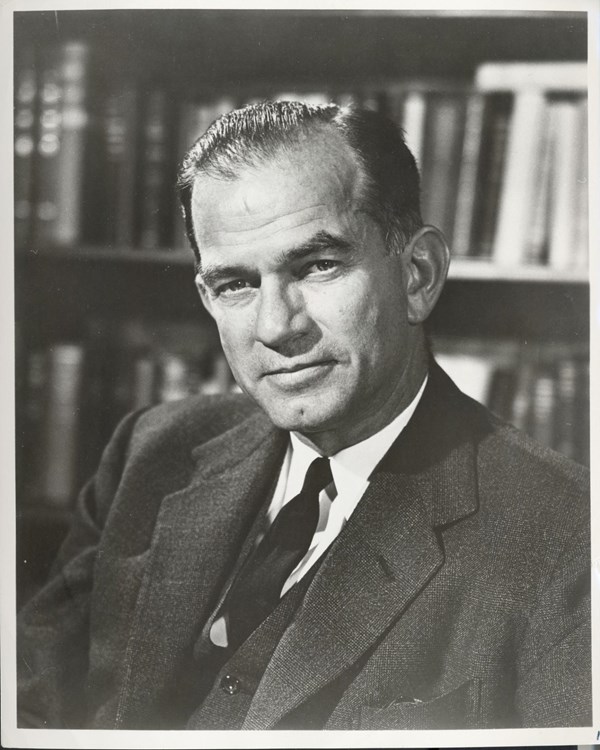Last updated: January 23, 2022
Person
Senator J.W. Fulbright

Special Collections, University of Arkansas Libraries
"[I am] very interested in getting the Buffalo River included in the National Park System...[and intend to obtain an] appropriation which would finance a survey by the National Park Service of this area."
- Senator J.W. Fulbright, 1961
James William Fulbright (1905 - 1995) was a U.S. Senator representing the state of Arkansas during the era when the fate of the Buffalo River was at stake. Before his election to the U.S. Senate, Fulbright served as a professor of law at the University of Arkansas and then became the university's president at age 34. In 1942 he was elected to the U.S. House of Representatives and served one term before his election to the Senate in 1944.
Initially, Fulbright advocated for the construction of two dams on the Buffalo at Gilbert and Lone Rock, a proposed project by the U.S. Army Corps of Engineers. When President Eisenhower vetoed the River and Harbor and Flood Control Bill passed by Congress in 1957, which included both projects on the Buffalo River, Senator Fulbright stated that the President's action was "a most serious blow to the progress and the orderly development of the water resources, not only in Arkansas but in all the Nation."
In 1961, a new bill was introduced by Representative James W. Trimble of Arkansas' Third Congressional District that would provide for the development of hydroelectric power and flood control within the White River basin, including the U.S. Army Corps of Engineers' two proposed projects on the Buffalo River. This action prompted conservationists from across the state to assemble with the shared goal to preserve the Buffalo River in its wild, free-flowing state as a new unit of the national park system. One of the leaders in this movement to "save the Buffalo River," Evangeline Pratt Archer of Fayetteville, called upon her old friend, Senator J.W. Fulbright, to garner Congressional support and funding for a survey of the Buffalo River by the National Park Service. Fulbright responded in the affirmative, and the following October a National Park Service team visited northern Arkansas and determined that the Buffalo River was eligible for inclusion in the national park system.
On January 30, 1967, Senator Fulbright introduced a bill that proposed the Buffalo's designation as a national river administered by the National Park Service. A similar bill was brought forward in the House of Representatives a few weeks later by Representative John Paul Hammerschmidt. At that time, Congress was consumed with the war in Vietnam and tabled the bills until 1971. Once merged and passed through the Senate and the House of Representatives, these bills ultimately led to Public Law 92-237, which "[provided] for the establishment of the Buffalo National River" on March 1, 1972.
